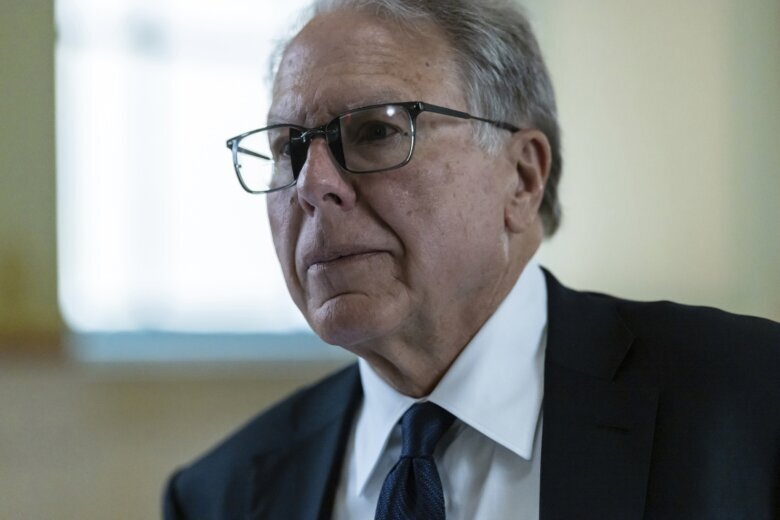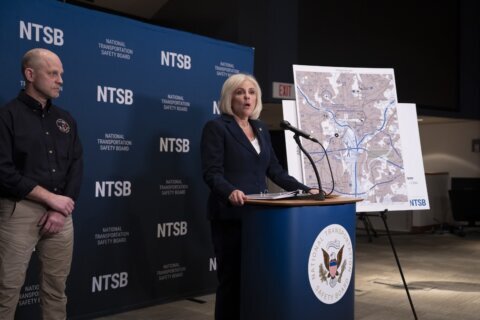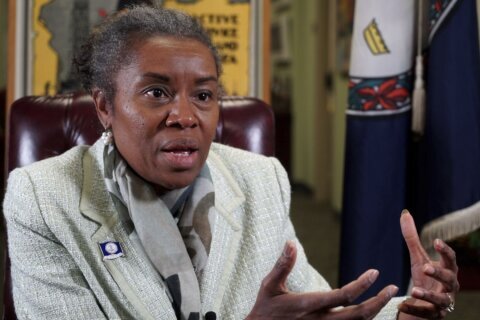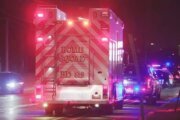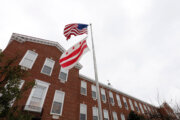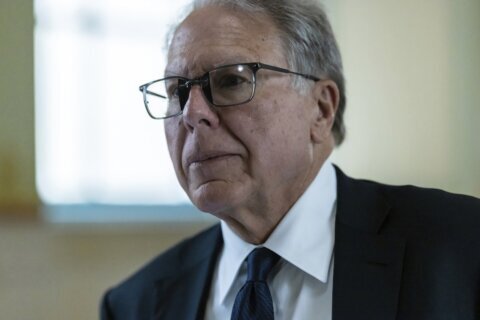
NEW YORK (AP) — A New York judge on Monday banned Wayne LaPierre, the former head of the National Rifle Association, from holding a paid position with the organization for a decade, but declined to appoint an independent monitor to oversee the gun rights group.
The split decision from Judge Joel Cohen came on the final day of arguments in the second stage of a civil trial brought by New York Attorney General Letitia James.
The first phase of the trial, decided in February by a Manhattan jury, found LaPierre and another deputy liable for misspending millions of dollars on lavish trips and other personal expenses.
Ruling from the bench, Cohen said the state’s request for a monitor was not the correct remedy, suggesting the oversight mechanism would be “time-consuming, disruptive and will impose significant costs on the NRA without corresponding benefits.”
Cohen also said he had concerns about “speech-chilling government intrusion on the affairs of the organization.”
He said the same First Amendment concerns did not apply to whether LaPierre could return to the organization anytime soon.
“This relief is about the privilege, not the right, to serve as an officer or director of a New York not-for-profit,” he said.
LaPierre, who sat in the front row as the judge read his ruling, did not respond to questions as he left the courtroom.
Earlier Monday, LaPierre told the judge that appointing a monitor to oversee the gun rights group’s finances would be “equivalent to putting a knife straight through the heart of the organization and twisting it.”
He described the appointment of a monitor as an existential threat to the group because it would send a message to prospective members and donors that the NRA was “being surveilled by this attorney general in New York.”
An attorney for the NRA, Sarah Rogers, echoed those concerns. She said the group had implemented new controls since the jury’s verdict, including bringing on fresh board members and a new compliance team.
But Assistant Attorney General Monica Connell dismissed those efforts as lackluster, arguing that the old guard leadership effectively still controls the organization.
In his ruling, the judge said the NRA’s reaction to the February verdict had been “decidedly mixed” and accused the group’s leaders of displaying “a stunning lack of accountability” about their own culpability in the yearslong mismanagement.
He invited attorneys for the NRA and the state to submit further proposals on reforming the organization.
In a statement after the verdict, James said: “After years of corruption, the NRA and its senior leaders are finally being held accountable.”
LaPierre served as the group’s CEO and executive vice president for more than three decades. He resigned in January on the eve of the first phase of the trial.
Those proceedings cast a spotlight on the leadership, culture and financing of the organization, with state lawyers accusing LaPierre of siphoning millions of dollars from the organization to fund his lavish lifestyle, including trips on private jets, expensive suits, and family vacations.
The jury ordered LaPierre to repay almost $4.4 million to the organization, while the NRA’s retired finance chief, Wilson “Woody” Phillips, was ordered to pay back $2 million.
The second phase of the proceeding was a bench trial, meaning there was no jury and the judge handed down the verdict.
James, a Democrat, sued the NRA and its executives in 2020 under her authority to investigate not-for-profits registered in the state. She originally sought to have the entire organization dissolved, but the judge ruled in 2022 that the allegations did not warrant a “corporate death penalty.”
The latter phase of trial came as the NRA faces an internal power struggle, pitting its new reform-minded chief executive, Doug Hamlin, against longtime leaders who remain close to LaPierre.
The NRA has seen a precipitous drop in revenue and lost more than 1.3 million members since 2018, according to an expert witness called by the group.
Copyright © 2025 The Associated Press. All rights reserved. This material may not be published, broadcast, written or redistributed.

